
Hayes Barnard
President of GivePower
Hayes Barnard serves as president of GivePower, a nonprofit organization that constructs solar installations for communities in need around the world. GivePower's solar microgrids are designed to improve the lives of people in developing communities in seven sectors: water, food security, health, education, conservation, economic development and telecommunications. In June 2018, the nonprofit installed its first solar water farm for the people of Kiunga, Kenya, who had been forced to drink, cook and bathe in contaminated water. This solar farm powers desalination technology and advanced filtration systems that convert brackish salt water into clean water for 35,000 people every day. GivePower's other solar installations include projects in Puerto Rico, Columbia, Haiti, Nicaragua, Kenya, the Democratic Republic of Congo, and Nepal.
In July 2019, GivePower partnered with other nonprofits and JinkoSolar, a solar panel manufacturing company, to build the CannonBall Community Solar Farm. The 300-kilowatt solar farm is located three miles from the Dakota Access Pipeline on the Sioux Nation Tribe's Standing Rock Indian Reservation in CannonBall, North Dakota. The solar installation came about due to the Sioux Nation's concerns over the environmental impact of the Dakota Access Pipeline, which sparked controversy in 2016. The CannonBall Community Solar Farm has a projected cost savings of $7,000 to $10,000 annually, which is being put directly back into the community.
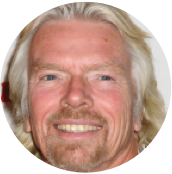
Richard Branson
Philanthropist and Activist
Richard Branson, or more formally Sir Richard Charles Nicholas Branson, is primarily known as the founder of Virgin Group, which encompasses over 400 companies in various industries. However, Mr. Branson frequently speaks out about the climate crisis, and has made clean energy a priority through several business and philanthropic endeavors. Specifically, following the devastation in the Caribbean caused by hurricanes Irma and Maria in 2017, he used his celebrity status and connections to launch the Caribbean Climate-Smart Accelerator, a $1 billion fund to initiate clean energy in the area. In August 2018, BMR Energy, a Virgin Group subsidiary, purchased a solar farm in St. Croix. Following the purchase, BMR restored the farm to full capacity, powering nearly 1,600 homes in the island.
In March 2019, Mr. Branson proposed a "clean energy dividend" to replace the carbon tax model, which is used by many governments to curb carbon emissions but is often circumvented by legislation. Under the proposed model, a company would impose a clean energy dividend on the fossil fuel they use and the carbon emissions they cause. Unlike a carbon tax, which would be collected by a government institution, this dividend could be invested into generating clean energy through solar panels, wind farms and other alternatives. Through these investments, according to Mr. Branson, the companies will get this money back plus dividends over time.
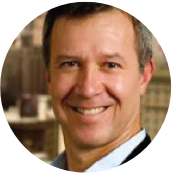
Adam Browning
Executive Director of Vote Solar
Adam Browning is the director and co-founder of Vote Solar, which endeavors to remove regulatory barriers and implement key policies needed to bring solar to scale. In order to achieve its vision of making solar a mainstream energy source, the nonprofit works in five key areas: net metering and rates, low-income solar access, community solar, incentives and market drivers, and building a modern grid. Founded in 2002, Vote Solar operates in 25 states, including major campaigns in California, Arizona, New Mexico, Colorado, Nevada, Illinois, Michigan, Pennsylvania, New York, Massachusetts and Florida. According to Mr. Browning, Vote Solar is focused at the state level where bipartisan progress on solar initiatives is more likely to occur than at the federal level.
In September 2018, the State of California passed an historic bill committing the Golden State to 100 percent clean electricity by the year 2045. Vote Solar worked for two years with leaders across the state to help achieve this legislative landmark.
As of September 2019, Vote Solar was fighting against Florida Power & Light's efforts to charge a seven-year premium for those who plug into community solar in the Sunshine State. According to Vote Solar, this plan disenfranchises many families and businesses that can't afford their own panels and who would benefit from community solar.

Jimmy Carter
39th President of the United States
Jimmy Carter famously installed 32 solar panels and a solar hot water heater on the White House in 1979 as symbolic gesture to address the nation's energy crisis. (Just as famously, his successor Ronald Reagan removed them.) Furthermore, Carter created the Department of Energy and the Federal Energy Regulatory Commission, and signed the Public Utility Regulatory Act, all of which were catalysts for the advancement of renewable energy in the US.
In July 2017, the former president, in conjunction with solar development firm SolAmerica, completed the construction of a solar farm on 10 acres of land in his hometown of Plains, Georgia. The solar farm generates 1.3 megawatts of power per year, which is equal to burning about 3,600 tons of coal and represents half of the annual energy requirements of Plains. That same year, the Carter family had 324 solar panels installed on the Jimmy Carter Presidential Library that provide about seven percent of the library's power.
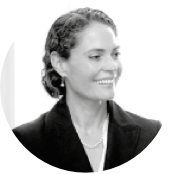
Bernadette DelChiaro
Executive Director of California Solar & Storage Association (CALSSA)
Bernadette DelChiaro is the executive director of CALSSA, which promotes the widespread adoption of local clean energy technologies and supports a variety of businesses that are involved in clean energy in California. CALSSA, which has over 500 member companies, seeks to accomplish these goals through providing business services, policy development, advocacy, education and networking opportunities.
Among CALSSA's specific goals regarding solar energy are protecting net metering, developing fair utility rates, lowering soft costs (e.g., local permitting, utility interconnection processes, etc.), promoting solar thermal technologies, keeping solar and storage affordable for all communities, improving smart grid technology, and extending solar investment tax credits. The organization is behind the SUNPAC political action committee that seeks to build and maintain a pro-clean-energy majority in the state of California.
In recent years, CALSSA has been instrumental in the strides that California has made to utilize solar technology. For example, in December 2018, the California Building Standards Commission confirmed new standards requiring solar panels to be installed on most new homes built in the state starting in 2020. According to CALSSA, the solar industry installs solar on approximately 150,000 new and existing homes in the state each year, with approximately 15,000 of those projects being new homes. On average, California builds 80,000 new homes annually.

James Ellsmoor
Director and Co-Founder of Solar Head of State
James Ellsmoor is the director and co-founder of Solar Head of State (SHOS), an international nonprofit that raises awareness of solar power and other renewable energy through the installation of solar panels on executive residences in the Caribbean and Pacific Islands. This allows the leaders to exhibit the benefits of solar power on their nation's iconic and historic buildings, thereby increasing the social impact and visibility of clean energy. According to SHOS, this mission was inspired by Jimmy Carter's installation of solar panels and a solar water heater on the roof of the White House in 1979, which was a statement in favor of conserving energy during the energy crisis.
Mr. Ellsmoor and SHOS have worked with President Mohamed Nasheed to install solar panels on the Muliaage, the Official Presidential Residence of the Maldives; with the Government of Saint Lucia to install solar panels on the public residence of the Governor General, Government House; and with the Government of Jamaica to install solar panels on the national executive office, Jamaica House. In general, these islands are among the most vulnerable to climate change. For example, the Maldives lie only a few feet above sea level, and Saint Lucia has faced rising sea levels and frequent tropical storms.

John Farrell
Director of the Energy Democracy Initiative at the Institute for Local Self-Reliance (ILSR)
John Farrell directs ILSR's Energy Democracy Initiative, which promotes the economic and environmental benefits of local ownership of decentralized renewable energy. Mr. Farrell defines "energy democracy" as follows: both the sources (e.g. solar panels) and ownership of energy generation are distributed widely; the management of the energy system is governed by democratic principles that allow ordinary citizens to have a say; and the wide distribution of power generation and ownership, and access to governance of the energy system is equitable by race and socioeconomic status.
To achieve these goals, the Energy Democracy Initiative strives to empower local communities with technical assistance, strategic advice, and policy reports and data. Furthermore, the organization advocates for the power of communities by challenging the influence of corporations over the energy sector.
In addition to writing extensively on the economic advantages of democratizing the electricity system, Mr. Farrell has written a state-by-state atlas of renewable energy potential entitled "Energy Self-Reliant States;" presented data on local renewable energy and keynoted conferences on solar energy; and posted regularly on Energy Self-Reliant States, a blog that analyzes current energy discussions and policy.
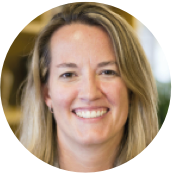
Julia Hamm
President and CEO of Smart Electric Power Alliance (SEPA)
Julia Hamm guides and oversees SEPA, a nonprofit organization that envisions a carbon-free energy system by 2050. SEPA comprises over 1,000 members, including utilities, regulators, corporations and government agencies. Founded in 1992, SEPA concentrates its strategies through four pathways: utility business models that support carbon-free energy operations; regulatory innovation at the state level; grid integration that makes carbon-free energy safe, secure, affordable and reliable; and transportation electrification, which is a long-term goal of transitioning all vehicles to carbon-free electric power.
To achieve these goals, SEPA facilitates the use of all forms of sustainable energy, including solar. Recently, SEPA has promoted the idea of flexible solar, which is method of using solar energy as a dispatchable resource (i.e., on demand and dispatched at the request of the utility). The nonprofit sees the future of this method being achieved through the use of solar-plus-battery units, advanced inverters, and smart contracts and programs.
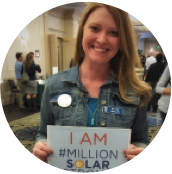
Kendra Hubbard
Board of Directors of Solar Energy Industries Association (SEIA)
Kendra Hubbard is a board member of SEIA, the national trade association that represents the interests of the over 240,000 Americans working in the US solar energy industry. The organization works with 1,000 member companies (manufacturing, marketing, installation and technical support businesses) to grow and diversify the solar job sector, to promote the use of cost-competitive solar in America, to remove market barriers to solar, and to educate the public on the benefits of solar energy.
SEIA has released a plan to have solar energy account for 20 percent of the total electricity generated in the US annually by 2030. The plan has four main objectives: work constructively with other industries and organizations to create an electricity portfolio comprised of clean energy sources; capitalize on market accelerators to enhance solar adoption, including energy storage and carbon reduction goals; institute beneficial climate policies, tax credits, state net metering rules, building codes and other market and policy drivers; and grow the industry in a socially responsible manner.
In addition to her work at SEIA, Ms. Hubbard works as a strategic account manager for UNIRAC Incorporated, which manufactures photovoltaic mounting systems.

Andreas Karelas
Founder and Executive Director of RE-volv
Andreas Karelas is the founder and Executive Director of RE-volv, an organization that utilizes what it calls the Solar Seed Fund model for solar energy. Using this method, RE-volv crowdsources funding that is used to pay for the installation of solar panels on community-serving nonprofit organizations. These organizations pay RE-volv back through a power purchase agreement or lease. The company reinvests this money into other similar solar projects. Thus, this creates a revolving fund that perpetually spreads solar across the country. Among the nonprofits that have successfully used the RE-volv model for installing solar panels are Riverwest Co-op, a natural food store and cafe located in Milwaukee; Harbor House, a community outreach center in Oakland; and Primates Incorporated, a Wisconsin-based facility that cares for primates that have been used in medical laboratories and Hollywood films.
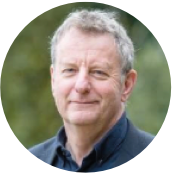
Jeremy Leggett
Founder and Director of Solarcentury, Founder and Chair of SolarAid
Jeremy Leggett is the founder and a board director of Solarcentury, an international solar solutions company; and the founder and chair of SolarAid, a solar charity that is funded by 5% of Solarcentury's annual profits. Mr. Leggett has also authored five books about climate and energy issues, including The Solar Century, which is about the future of the solar revolution.
Solarcentury provides the developing, finance structuring, building and operating of solar projects for commercial and utility customers. The full span of what the company provides can include everything from site identification for a solar project to the technical support of a finished installation.
SolarAid was formed to address the issue of the nearly 600 million people in Africa who have no electricity. In many cases, the people who lack electricity use dangerous homemade kerosene lamps as sources of light. The charity provides solar lights to many of these communities as safer, cleaner alternatives. SolarAid has supplied solar lights to people in Malawi, Zambia, Senegal, Tanzania, Uganda and Kenya. Many of the solar lights are capable of charging a cellphone.

Andrea Luecke
Executive Director of The Solar Foundation
Andrea Luecke is the Executive Director of the Solar Foundation, a nonprofit, nonpartisan entity that works to advance the use of solar power and solar-compatible technologies on a global scale. The organization focuses on providing data and best practices on the benefits of solar energy in regards to jobs, the economy, health, and public safety.
Every year, the Solar Foundation issues its National Solar Jobs Census report on the size and scope of the solar workforce in the US. (In 2018, the nonprofit reported that there were 242,343 solar workers in the US, down from its peak of 260,077 jobs in 2016.) Similarly, the foundation issues annual reports on diversity of the workforce in the solar industry. Among the nonprofit's other initiatives are SolSmart, a program that recognizes communities that make it easier and more affordable to go solar; the CivicPACE program to assist nonprofit, tax-exempt organizations in gaining greater access to solar financing; and the SolarAPP campaign, which seeks to simplify the solar permitting process at the federal, state and local levels.
Following the devastating effects of Hurricanes Maria and Irma on Puerto Rico, the Solar Foundation led an initiative called Solar Saves Lives under which various organizations worked to install solar panels and battery storage units at health clinics, community centers, and other critical locations.
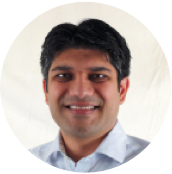
Jigar Shah
President and Co-Founder of Generate Capital
Jigar Shah is the president and co-founder of Generate Capital, a company that provides capital for alternative energy startups. Mr. Shah is also the founder of SunEdison LLC where he created the "no money down solar" business model and led the way in elevating solar to a multi-billion-dollar market. Furthermore, he can be heard weekly on the "The Energy Gang" podcast discussing energy, clean technology and the environment.
Generate Capital offers standard financial products (project finance, asset-backed lending, asset warehouses and other short-term financing) and custom financial products that are tailored for specific needs. Examples of the energy sectors that have worked with the firm include solar PV, solar thermal, energy storage, biomass and agriculture. Typically, Generate Capital puts up the capital to get an energy infrastructure project installed and also owns the asset. As the project delivers revenue over time and potentially saves the customer money, Generate Capital makes a return off of the cash flow. Among other projects, the firm has backed community solar farms in Minnesota.
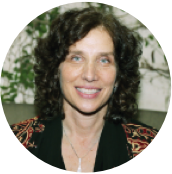
Laura E. Stachel, MD, MPH
Executive Director of We Care Solar
Dr. Laura Stachel is the Executive Director of We Care Solar, an organization that formed to address maternal mortality in developing countries. Worldwide, maternal mortality claims 300,000 lives annually, of which nearly all occur in underdeveloped countries. The major causes of these deaths -- obstetric hemorrhage, obstructive labor, eclampsia, and sepsis -- are possible to prevent with prompt, accurate and reliable heath care. We Care Solar aims to reduce maternal mortality by providing health care workers with solar electricity to power lighting, communications equipment, and medical devices.
After Dr. Stachel observed clinicians working in near-darkness in a Nigerian hospital, her husband—solar energy educator Dr. Hal Aronson—developed the We Care Solar Suitcase, a compact portable solar electric system designed to fit in a suitcase. The suitcase is mounted to the wall, and the solar panels are installed on the roof of the health center. The system includes a lithium ferrous phosphate battery, four LED lights for medical procedures, two 12V DC accessory sockets, two USB ports, two expansion ports to allow for optional accessories or additional lights, a custom display and user interface, a fetal Doppler with rechargeable batteries and battery charger, and two rechargeable headlamps.
As of October 2019, approximately 4,100 Solar Suitcases have been delivered to health providers around the world. Solar Suitcases have been deployed to more than 20 countries. Most recently, We Care Solar launched the Light Every Birth initiative to light up all energy-poor government health centers in five countries: Liberia, Sierra Leone, Uganda, Zimbabwe, and Tanzania. The non-profit aims to reach more than 8,000 health centers in the next five years. To support their efforts, go to: www.wecaresolar.org/donate/

Tor Valenza
Founder and CEO of UnThink Solar
Tor Valenza, aka "Solar Fred" on social media, founded UnThink Solar to help companies with strategies that challenge the traditional concepts of solar marketing. UnThink Solar provides public relations, content marketing, branding, web design and social media services for business-to-business and business-to-consumer solar companies. Specific services from the firm encompass case studies, press releases, blogging, white papers, copywriting, E-books, website design/redesign, advertisements, infographics, logo desgin, photography, SEO, lead generation, media buying, how-to videos, animation and market research. The company has worked with REC Solar, AEE Solar, SunPower, Solar Power Rocks, SolarCity and Go Green Solar, among numerous other clients. Mr. Valenza is active on social media promoting solar energy advantages and can often be seen at events that promote solar, including the annual Solar Power International conference.







